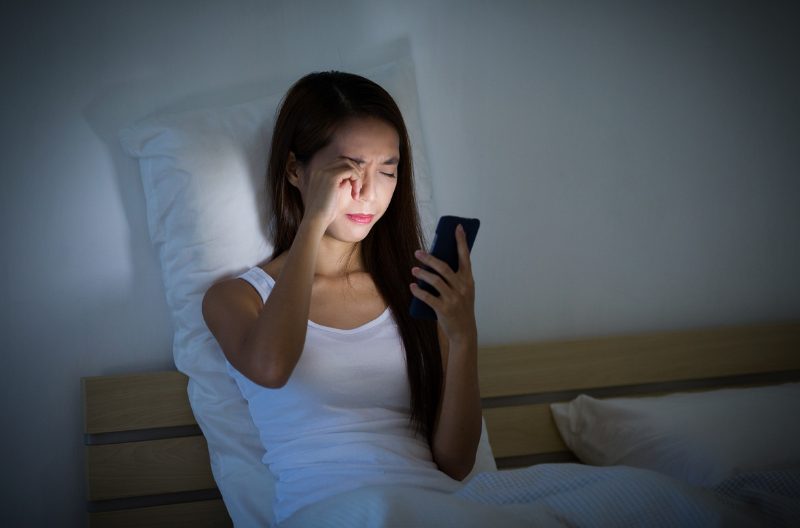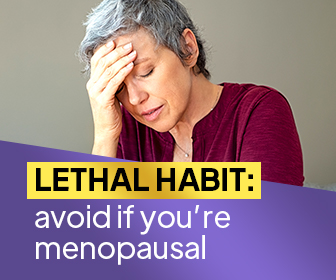If you’re finding it harder to nod off and experiencing more restless nights of sleep, you’re not alone in your struggle. Technological advances have improved so many areas of our lives, but they are negatively impacting our nightly (and daily) habits. The evidence is right in front of us. Between 30 to 35% of Americans have brief periods of insomnia, and blue light could be to blame.[1] Luckily, using a simple blue light filter or trying other small tricks could be the answer to your bedtime woes.
If you’ve never contemplated the damage that blue light could be doing to both your eyes and sleep, it’s time for a reality check. In this article, we’re going to take a look at two major things. First of all, what is blue light? And, secondly, how can you avoid it harming you?
What is Blue Light?
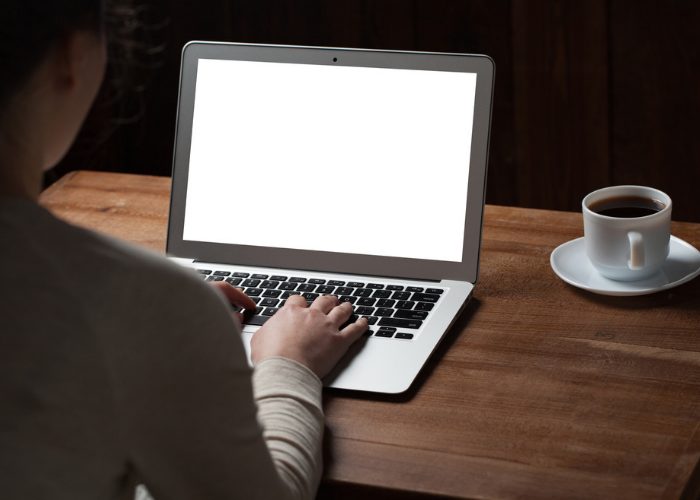
You may already know that staring at a screen for hours on end is bad for your health and sleep, but do you know why? Before we delve into how you can deal with this problem, let’s talk about the main question here. What is blue light and why does it matter?
First of all, you need to know that the light you see from a screen is made up from a range of electromagnetic particles, which are represented by different colored waves. The term “blue light” is given to blue wavelengths that are emitted by both digital screens and the sun.[2] During the daytime, the light is actually quite beneficial and could help you stay awake, boost your focus, and improve your mood.
Fun Fact: Research shows that blue light exposure can reduce your sleep time by an average of 16 minutes per night.[3]
However, if you have a nasty habit of using screens at night, you may find that this blue light has a negative effect on your lifestyle. Many people find that this type of light impacts their length and quality of sleep. In turn, it can also lead to a state of general restlessness.
If you struggle nodding off when you hit the hay, you may find that spending too much time staring at a screen is the cause of the issue. Luckily, there are ways in which you can lessen the impact of this light, such as using a blue light filter or blue light glasses.
Why is it Harmful for Our Health?
So, how exactly does it hinder your wellness? More than 80% of Americans report using digital devices in the hour before they go to sleep, according to The Vision Council.[4] While you might think nothing of carelessly looking through Facebook on your phone or tablet when you’re in bed, this habit could be damaging your sleep more than you know. Here are four of the worrying ways in which exposure to blue light at night could be impacting your health.
1. Blue light shortens our sleep
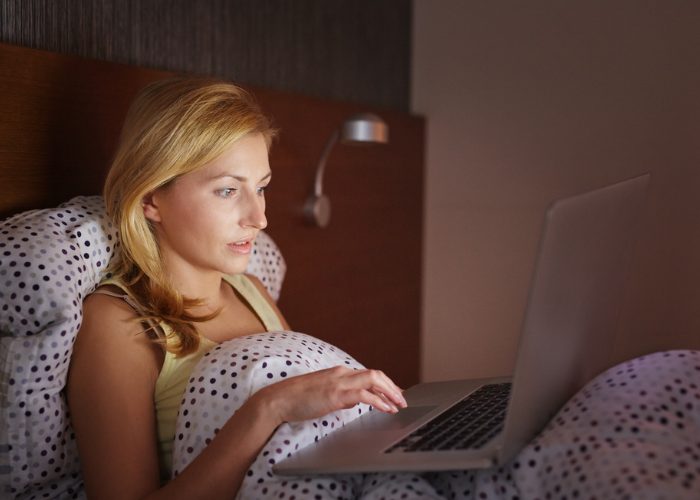
The blue light that is emitted by the screens we look at could be having a damaging effect on our sleep, according to research from the University of Haifa.[5] While prior studies have already suggested that looking at screens directly before you go to bed could mean that the quality of sleep you get is poorer than it would otherwise be. However, this latest piece of research sheds more light on the consequences of spending too much time staring at screens.
As part of the study, 19 healthy adults wore an actigraph (a device that measures when a person wakes up and falls to sleep) for a week. They also wrote a sleep diary to keep an account of their rest patterns as well as filling in a questionnaire. After this, the participants headed to the Assuta’s Sleep Laboratory where they were exposed to screens between the hours of 9pm and 11pm. Participants were shown four types of light: high-intensity blue light, low-intensity blue light, high-intensity red light, and low-intensity red light.
The results found that those who were exposed to the blue light saw a reduction in their sleep by around 16 minutes on average. The researchers also found that the exposure to this light—which is similar to that of a smartphone—also reduced melatonin production. Melatonin is a natural hormone responsible for regulating the body’s sleep pattern. This caused the disruption of the continuity of sleep, which meant that participants got less rest. The conclusion is that looking at a blue light screen could disturb your sleep patterns.
2. It also damages your quality of sleep
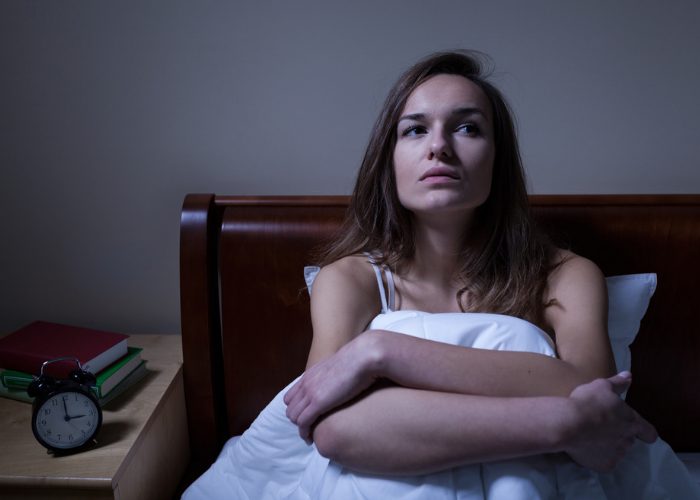
It’s not only the length of your sleep that you should be concerned about. Research from the University of Houston suggests that exposure to blue light can also have an impact on the quality of your sleep.[6] The study published in Ophthalmic & Physiological Optics found that looking at blue light from digital screens could be in part responsible for the high cases of reported sleep dysfunction.
During the study, participants wore blue light glasses when using screens at night for a matter of two weeks. This resulted in an average of a 58% increase in the participants’ melatonin levels when they went to bed. In turn, the boost in the hormone meant that those who took part in the experiment saw a better quality of overall sleep.
Did you know that 31% of Americans experience eye strain thanks to too much blue light exposure?[7]
Since blue light has been proven to have a negative effect on the sleep we get, we should do something to battle this issue. The researchers recommended that, in order to reap these rewards, people should use a blue light filter or wear blue light glasses during the evening. This small and simple lifestyle change could lead to a higher quality of sleep as well as longer states of restfulness.
3. It could speed up the onset of blindness
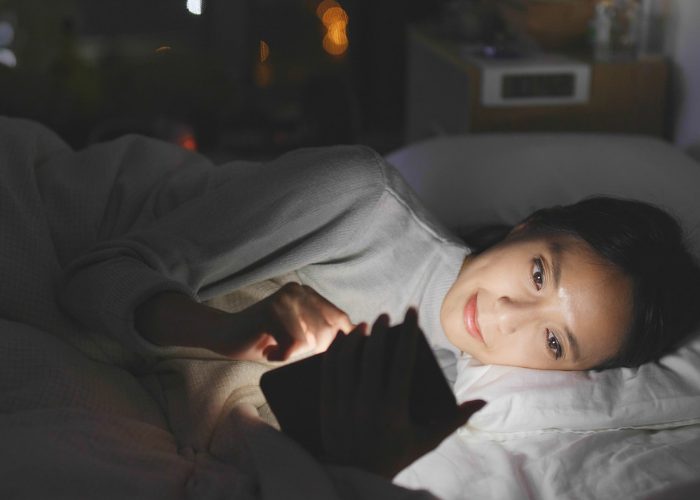
There are few things in life as valuable as the gift of sight. However, staring at a screen too regularly could rob you of this sense. One study from the University of Toledo found that looking at blue light regularly could also speed up the onset of blindness.[8] The research found that the blue light emitted from digital devices, such as smartphones, could turn molecules in the eye into cell killers. This could have a snowball effect leading to the onset of macular degeneration, a disease which causes vision loss.
On the other hand, the researchers found that the green, yellow or red light had no effect on a person’s eyesight or the cells in their retina. The researchers advised that people should avoid UV rays from the sun when outside and try not to look at your phone or tablet screen when you’re in the dark. Alternately, if you tend to use digital gadgets often, you might find that it’s helpful to use a blue light filter for them.
4. It may also cause eye strain
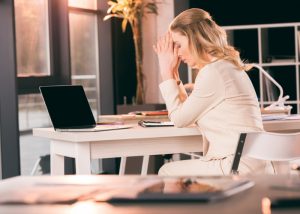
Do you struggle with sore and tired eyes each morning? Believe it or not, your evening screen time may be causing this annoying issue. Nearly a third of Americans experience eye strain as a result of using digital devices, while 22% say that they have had dry eyes too, according to The Vision Council.[9] Other issues that arise when people tend to look at screens too often include headaches, neck, back, and shoulder pain, and blurred vision.
Needless to say, these short-term side effects could cause you a great deal of pain and discomfort during the day. Experts recommend that one of the ways in which people can reduce their levels of eye strain is to use blue light glasses or a blue light filter. Of course, you can also try to abstain from using digital devices in the evening.
What Are Blue Light Filters?
Blue light filters are designed to decrease the harmful color waves emitted by screen. They come in a number of forms, so you’re sure to find one that suits your lifestyle and budget.
There are physical filters, such as a screen protector or blue light glasses, that tint the color of the screen you are using. The second type of filters come in the form of apps and programs, which change the tone and color of your screen, decreasing the amount of blue light allowed through.
1. Blue light filter apps and programs
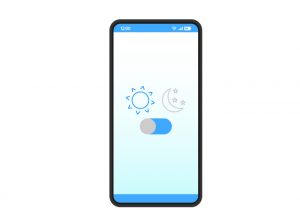
Should you download an app or program that tackles blue light, the chances are that it will remove the blue light spectrum from your screen completely. When you turn the app or mode on, you will find that your phone, tablet, or laptop screen has a slight orange tint. Don’t worry, this color change is normal and is a sign that the app is doing its job.
2. Blue light glasses and guards
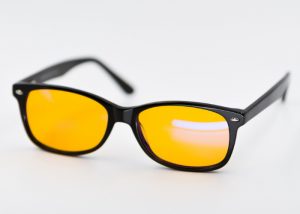
If you don’t want to go down the software route, screen protectors and blue light glasses could help you decrease your exposure. These guards absorb the harmful light waves as they leave your screen, which means that they never once enter your eyes or damage your retinas. In this case, you will notice an orange tint on your screen or, if you’re wearing blue light glasses, on the glasses lenses.
Still unsure of what to do next? Figuring out which option works for you shouldn’t be all that difficult. If you happen to use your laptop late at night for work purposes, you may find that investing in a screen protector or blue light glasses is a smart move. However, if you happen to be a casual smartphone or tablet user, getting an app or feature designed for this purpose is a simple and low-cost solution.
What Are the Best Blue Light Blockers?
Now that you know more about different types of blue light filters, you may be wondering which one is the best to buy. The one that you choose will depend on the type of device you have. To that end, let’s take a look at some of the best blue light blocker apps and gadgets.
Blue light blocking glasses
Not all lenses are created equal. Here are a couple of the best blue light blocking glasses you can get online right now.
Swannies Glasses by Swanwick Sleep
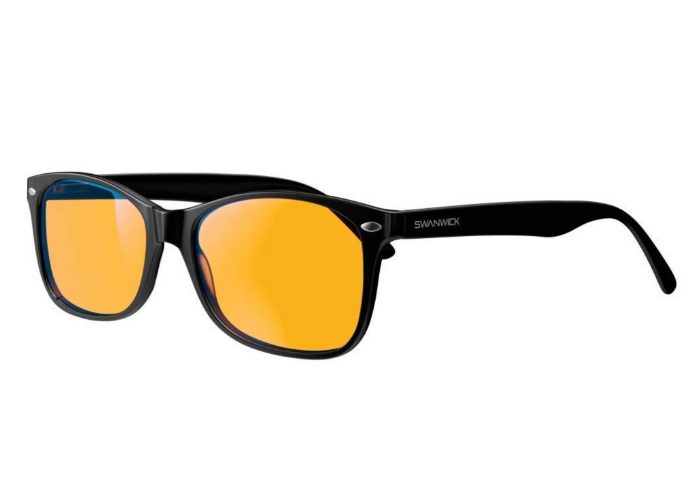
Image credit: Amazon
Swannies is an FDA Registered Company offering some of the best mid-range blue light glasses on the market. The built-in blue light filter gives the glasses a unique color and look. Aside from being amber-tinted to block out the blue light, these glasses have a stylish twist, which means you will have no problem wearing them at work or at home. These glasses cost around $50-$60.
Uvex Skyper Blue Light Blocking Computer Glasses
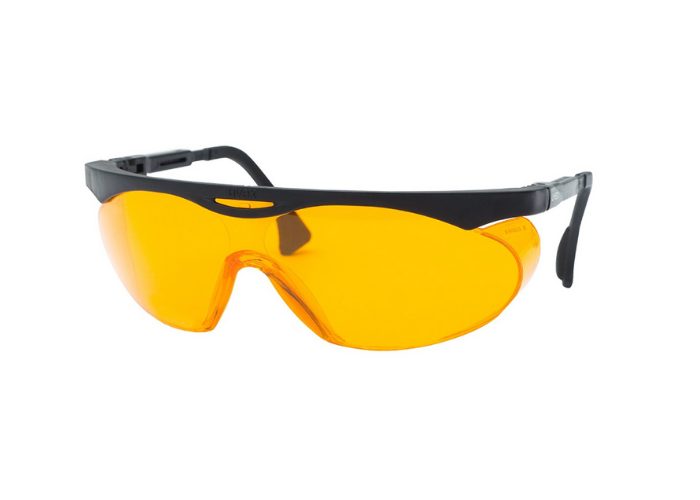
If you’re looking for a cheaper pair of blue light glasses, you can’t go wrong with the Uvex Skyper Blue Light Blocking Computer Glasses. The lenses also have an orange or amber tint along with an extreme anti-fog feature too. The futuristic-looking glasses cost under $20, which makes them the perfect budget buy for the average PC user.
Filter for PC
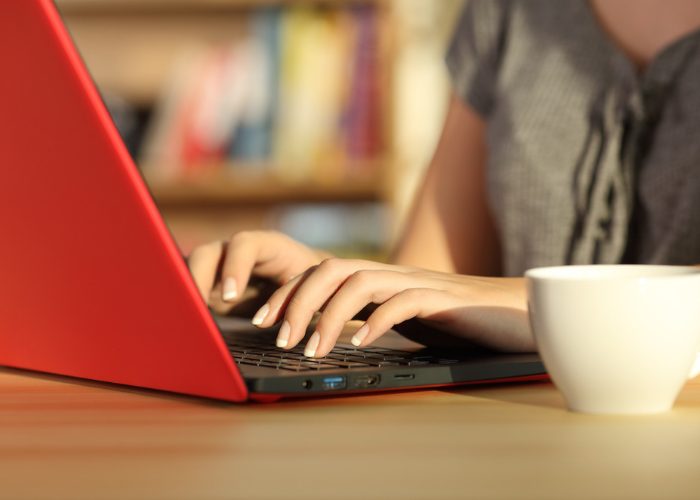
Would you rather use software as a blue light filter? Whether you work late nights on your PC or simply can’t switch off, getting a handy download could help decrease your blue light exposure more than you know. Here are two you might want to try for yourself.
F.lux
The main aim of F.lux is to make reading on your computer screen more like reading a book. The software warms the color of your PC screen so that it has an orange or amber tint to it. It basically decreases the harmful waves emitted from your screen and works as a blue light filter app. You can download it for free on PCs, laptops, and Macs as well.
CareUEyes
CareUEyes is a blue light filter app that allows you to customize the color of your computer screen. Aside from that, it also sends you regular reminders to help you take more breaks from your device. If you have trouble tearing yourself away from your PC, this could be the app for you. Give it a go!
Blue light filter for iPhone
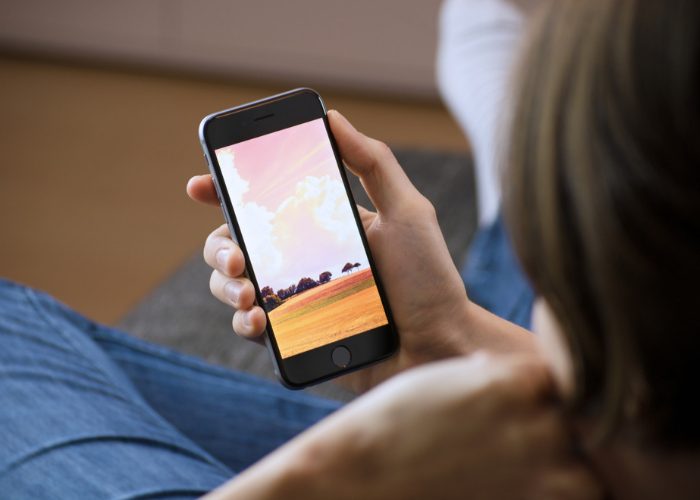
Guilty of using your iPhone when you’re in bed? We’ve all been there. Luckily, if you’re an Apple smartphone user, you don’t need to download a special blue light filter app on your phone. The latest versions of iOS (9.3 or newer) have a blue light filter feature already loaded onto the system. The feature is called Night Shift and can easily be scheduled.
Want to turn it on? Go to Settings > Display & Brightness and then tap on Night Shift. You can set the times you want the filter to be active and choose the warmth of the filter that suits you. If you set this up once, it will automatically run every single night until you turn it off again.
Blue light filters for Android
While some Android phones may have a blue light filter already built into them, most don’t come with this feature as standard. However, there are apps that you can download, which do the same job. Here are a couple of the best Android blue light apps.
Twilight
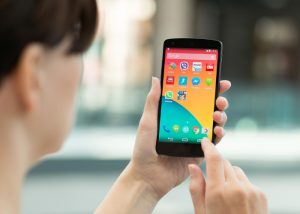
When you install and activate the Twilight app on your Android phone, it will adapt the color of your screen to the time of day. During the daytime hours, your phone will be light and bright with plenty of blue light waves. However, when night-time falls, your phone screen will start to get a warmer glow and the blue light is filtered out.
Blue Light Filter
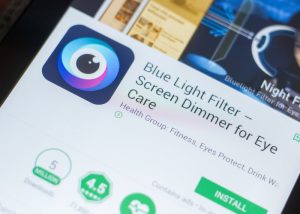
Similarly, the Blue Light Filter app on Android decreases the amount of blue light that is emitted from your screen. You can adjust the intensity of the filter at any time to suit you. The app also comes with a built-in screen dimmer and promises to save you power too.
3 Tips To Reduce Its Damage
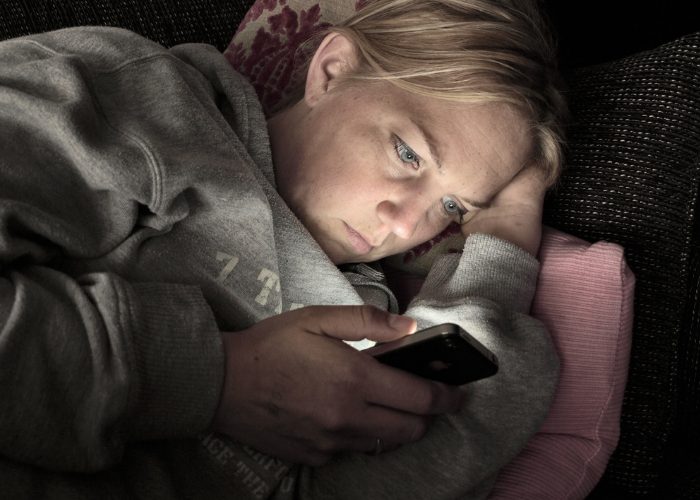
We’ve covered the dangers of too much late night blue light exposure in depth. Now it’s your turn to take some action. If you’re worried about both your eyesight and your sleep, there are some easy ways you help protect yourself. Without further ado, here are three easy steps to boost your health.
- Reduce your screen time Could you reduce your screen time? If you’re in the habit of using gadgets late into the evening, it could be time to change your ways. In the hour before you go to bed, try to avoid using any device with a screen.
- Research the filters for you We’ve given you an overview of the best blue light filter technology here. Now that you’ve read our guide, it’s time to do some research of your own. Look online and see what options are available to you right now.
- Get the right blue light filter When you’ve decided on the right choice for you, get using it. If you have blue light glasses, make sure you wear them regularly. If you’re using an app or mode, schedule it so that it comes on automatically each evening.
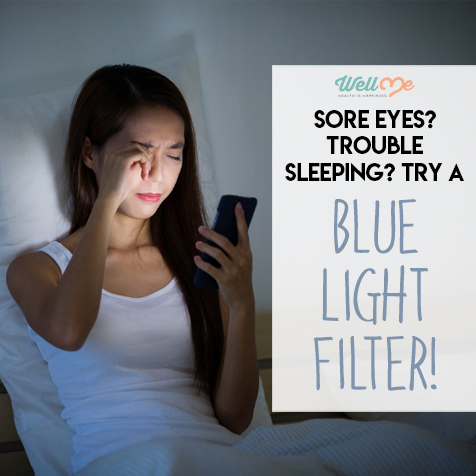
Conclusion
Now you’re aware of the effect that blue light has on your health, it’s your responsibility to do something about it. This issue could be destroying your sleep and causing you other health-related problems too. By simply changing your ways and getting a blue light filter, you could improve your overall lifestyle immensely. So, what are you waiting for? Start protecting your eyes today and get a blue light protector that suits you.
References
- [1] http://sleepeducation.org/news/2014/03/10/insomnia-awareness-day-facts-and-stats
- [2] https://www.health.harvard.edu/staying-healthy/blue-light-has-a-dark-side
- [3] https://www.haifa.ac.il/index.php/en/home-page3/2528-the-blue-light-emitted-by-screens-damages-our-sleep
- [4] https://www.allaboutvision.com/downloads/vc-whats-blue-light-one-pager-2017-01.pdf
- [5] https://www.haifa.ac.il/index.php/en/home-page3/2528-the-blue-light-emitted-by-screens-damages-our-sleep
- [6] https://onlinelibrary.wiley.com/doi/abs/10.1111/opo.12385
- [7] https://www.allaboutvision.com/downloads/vc-whats-blue-light-one-pager-2017-01.pdf
- [8] https://www.nature.com/articles/s41598-018-28254-8
- [9] https://www.allaboutvision.com/downloads/vc-whats-blue-light-one-pager-2017-01.pdf

